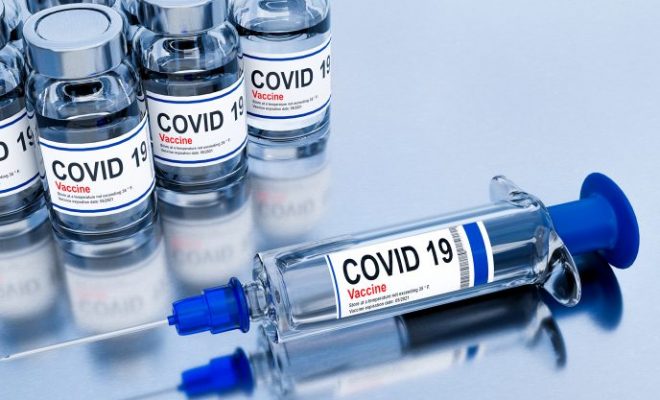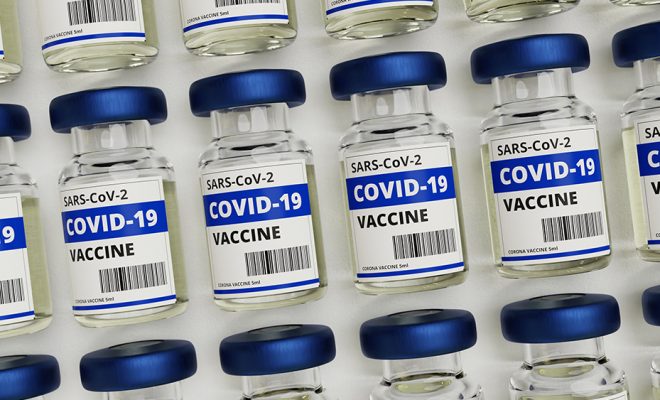In Rush for Regulatory Approval of COVID Vaccines, Do We Need More Data?

In April 2021, Pfizer and Moderna announced efficacy results at the six-month mark from the phase 3 trials of their respective COVID-19 vaccines.
Pfizer CEO Albert Bourla said the company’s data “confirm the favourable efficacy and safety profile of our vaccine and position us to submit a Biologics License Application to the U.S. FDA [Food and Drug Administration].” And on May 7 it formally initiated that application which, if successful, will earn the Pfizer-BioNTech product, BNT162b2, the distinction of becoming the first COVID-19 vaccine approved by the FDA.
Because lest we forget, all COVID-19 vaccines currently in use in the U.S. are available under emergency access only.
The situation is similar in Europe, where four COVID-19 vaccines have been granted “conditional marketing authorisations,” a fast track mechanism that can be used in emergencies. These can be converted into standard “marketing authorisations” pending positive data after authorisation, but this has not yet happened for any COVID-19 vaccine being administered.
As hundreds of millions of people around the world get vaccinated, it may seem like wordsmithing to highlight the fact that none of the COVID-19 vaccines in use are actually “approved.” Through an emergency access mechanism known as Emergency Use Authorisation (EUA), the products being rolled out still technically remain “investigational.” Factsheets distributed to vaccinees are clear: “There is no FDA approved vaccine to prevent COVID-19.”
The approval-authorisation distinction is often misunderstood by the media, even in the scientific press. But it was the focus of much discussion back in September 2020. With large phase III trials by Pfizer and Moderna well under way, and the November U.S. presidential election looming, many worried about political pressure resulting in the rollout of an unsafe or ineffective vaccine.
The FDA had already come under fire, accused of bending to the White House in granting EUAs for two COVID-19 treatments, hydroxychloroquine and convalescent plasma. But those fears largely dissipated when the FDA published a guidance document in early October outlining its expectations for the EUA. According to the document, at least half of a trial’s participants would need to be followed for at least two months. This alone made it all but certain no vaccine could cross the line before the election.
The FDA also said it would want a vaccine at least 50% effective (with a confidence interval reaching no lower than 30%) against a primary endpoint of preventing SARS-CoV-2 infection or COVID-19 disease of any severity — parameters it had previously defined as necessary for approval. Even for non-clinical parameters, like manufacturing quality, the FDA characterised its expectations for the EUA as “very similar” to those for approval.
Six months: enough?
One key difference between EUA and approval (also called “licensure,” and which for vaccines is known as a BLA (Biologics License Application) was the expected length of follow-up of trial participants. Unlike its clear articulation of two months for an EUA, the FDA has not committed to a clear minimum for approval.
Cody Meissner, a professor of paediatrics at Tufts University and member of the FDA’s advisory committee, was curious. “Is it possible to predict or estimate when conditions of safety and efficacy might be satisfied for BLA?” Meissner asked at the agency’s December 10 meeting which had been convened to consider the FDA’s first emergency authorisation for the Pfizer vaccine.
The FDA’s Doran Fink responded: “I couldn’t predict, but I will say that we typically ask for at least six months of follow-up in a substantial number of clinical trial participants to constitute a safety database that would support licensure.”
An approval based on six months of data would represent one of the fastest for a novel vaccine in FDA history. Among the six “first in disease” vaccines approved by the FDA since 2006, pre-licensure pivotal trials were a median of 23 months in duration, according to a recent analysis.
Six months also seems substantially shorter than previously conceptualised expectations. A World Health Organization expert group on COVID-19 vaccines (which included FDA regulators) in August 2020 called for follow-up “until at least month 12, or until an effective vaccine is deployed locally.” Another group, composed of industry and academic authors, similarly wrote in October 2020: “we recommend longer term follow-up of all participants … for at least a year after randomisation.”
On paper, the phase III studies by Pfizer, Moderna, and Janssen are all of two years’ duration. But the FDA’s official position on minimum follow-up before licensure is unclear at best.
In its formal guidance last June, the agency said that for licensure applications, it wanted participants followed for COVID-19 outcomes for “as long as feasible, ideally at least one to two years” after the first injection. But the same document states that safety assessments for “serious and other medically attended adverse events” should be studied “for at least six months after completion of all study vaccinations. Longer safety monitoring may be warranted for certain vaccine platforms.”
Asked to clarify whether its guidance is asking for follow-up of at least six months or one year, a spokesperson told The BMJ: “We do not have any further information beyond what is in the guidance document.”









